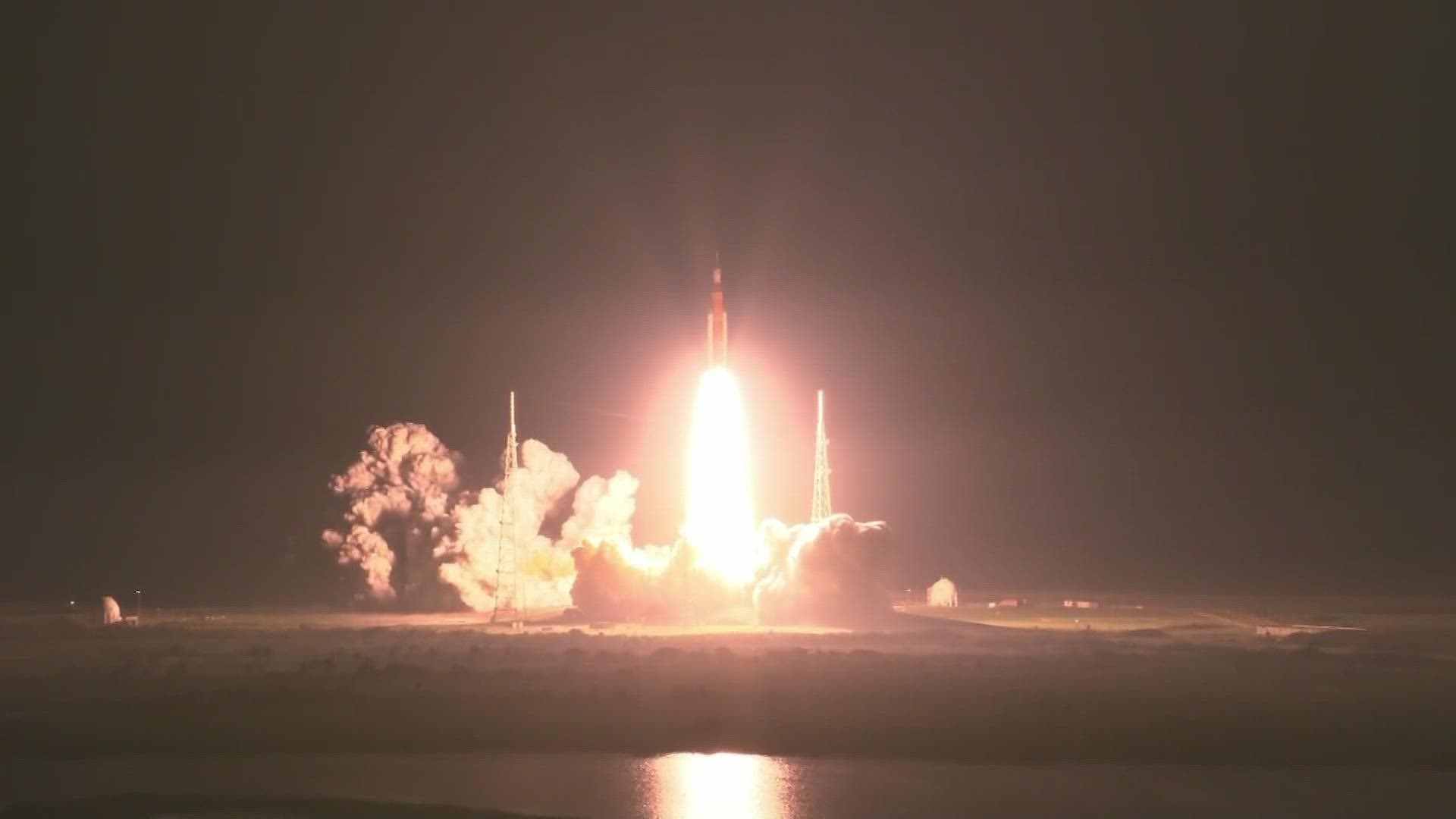HOUSTON — After an early morning Wednesday launch, the Orion spacecraft is well on its way to the moon.
It's set to pass within 60 miles of its surface on Monday. It'll be the next major milestone in a mission that is rekindling America's love affair with all things space.
NASA associate administrator and former astronaut Bob Cabana watched Artemis 1 blast off and roar into space from the roof of the Launch Control Center in Florida.
"This rocket was absolutely awesome," said Cabana. "Like a shuttle, only better. It just got up and left town."
Around the world and here in Space City, crowds were on hand to witness history.
"It's America's rocket," said Cabana. "We are all together on this."
Despite a last-minute leak Tuesday night, Artemis 1 finally lifted off after several scrubbed attempts.
The mission is off to a picture-perfect start. Orion is already sending back beautiful images of Earth, a sight we hadn't seen since the last Apollo mission in 1972.
"To see that blue marble like the Apollo astronauts saw, I can't wait for crews to see that again," said Cabana.
This mission is the ultimate test flight. Remarkable video is also coming in from inside the cabin as it travels deep into space. For now, mannequins on board are collecting data on what future human crews will experience on the journey.
"This is Artemis 1, a check out of the Artemis vehicle prior to putting crew on Artemis 2," said Cabana. "We're learning how it operates in a deep space environment."
The spacecraft is traveling further than ever before, journeying 1.3 million miles around the moon.
"The team from Houston is controlling the vehicle right now," said Cabana.
Mission Control in Houston is in charge until it splashes down in the Pacific Ocean next month. It's a critical test of how its heat shield performs during the dangerous 25,000-mile-per-hour re-entry.
"It's in our destiny to explore, to go beyond and this is a first step. Success on this will lead to more success," said Cabana.
NASA says the moon is only the beginning. Artemis missions will one day help them get to Mars.

